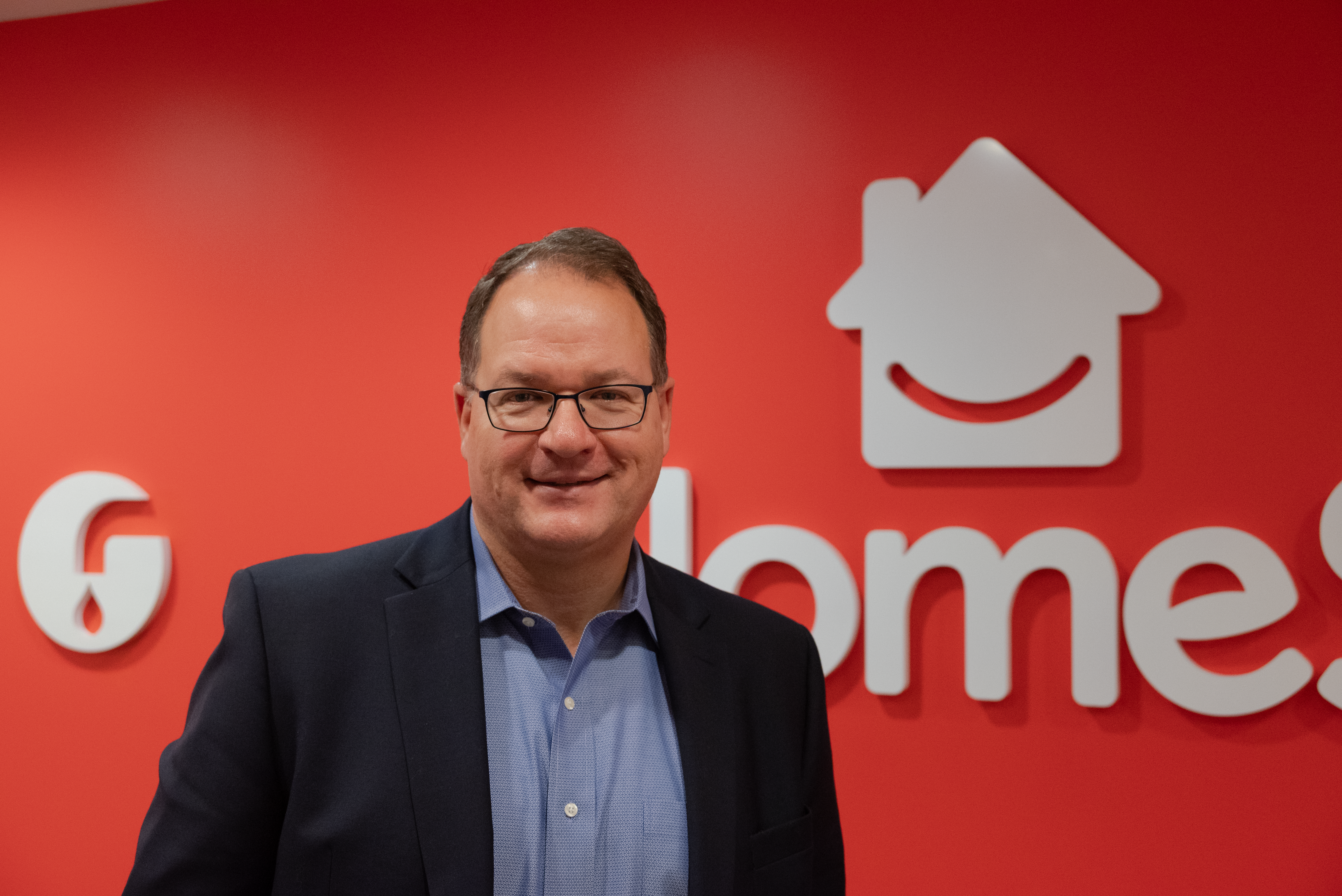HomeServe USA celebrates 20 years of relieving homeowners’ headaches

Tom Rusin’s favorite statistic is that HomeServe USA makes a repair in a customer’s home every 34 seconds.
Rusin has been the CEO of the Norwalk-headquartered company for 12 years – the former parent company, HomeServe, was founded in Great Britain 30 years ago, while the American operation began 20 years ago.
Today, HomeServe USA has operations across the continental U.S. and southern Canada, and it has completed more than $2 billion in repairs for homeowners who have purchased a service policy.
“If you’re a homeowner and something breaks in your home, it doesn’t matter how old, young, rich, poor you are,” said Rusin. “Everybody has the same three immediate reactions: ‘How much is this going to cost me? Who am I going to get to fix this?’ and ‘I don’t have time for this.’ Fundamentally, our business is about protecting and bringing policies to homeowners before something goes wrong in their home so that they’re prepared for whatever may happen. It doesn’t matter what inflation’s doing or who’s in the White House – all your core systems have a useful life, and they’ll eventually break, and probably at the least convenient time.”
When Rusin was recruited, he admitted that the core business of providing insurance coverage for water and sewage lines did not initially fill him with excitement. But two things changed his mind: the way honesty defined both the corporate culture and approach to customer service, and the sheer scale of the market.
“Eighty-five percent of water and sewer in the United States is provided to residents by their local municipality, so the government is effectively providing the water and sewer itself,” Rusin explained. “But in the vast majority of cases the homeowner actually owns the waterline and sewer line that runs from the house to the street. And those collectively break with the same frequency as car accidents and they’re really expensive to repair.”
Repairs for these vital pieces of equipment typically run in the thousands, and for many people it is not immediately obvious what sort of professional they should call – and even fewer have a long-term relationship with a tradesperson they can rely upon.
“What we find is a lot of homeowners, when they’re faced with an emergency they don’t know where to go. 42% don’t have their ‘person,’ they don’t know a plumber that is their go-to plumber or their go-to electrician,” Rusin added. “What we find is that because people don’t really have a steady relationship with a regular person, a lot of times they get overcharged when they’re faced with an emergency.”
HomeServe USA helps alleviate that problem by partnering with highly rated local tradespeople and over 1,000 full-time technicians in densely populated areas across the country. In both cases, a customer service team based in Chattanooga, Tennessee, will follow up with customers who rate any part of the process as below average.
“We’re not a marketing company, we’re a customer service company,” Rusin said. “Customer service is even an employee bonus metric, and because of that we run a very stringently screened nationwide network. We make a repair in somebody’s home every 34 seconds and our customer satisfaction rate is 4.8 out of 5.”
While keeping those satisfaction numbers high will always remain at the core of the business, Rusin believed that the future of the company’s growth may lie in not only repairing customers’ homes but improving them.
“We have 20 HVAC installation businesses around the country,” Rusin said. “We got into HVAC installations because our HVAC repair plans were the only ones that don’t cover replacement, even though sometimes a system will fail, and you can’t repair it. We would give our customers a list of people that can, and they would ask ‘why don’t you do it?’”
In the process of building out its capability, a pattern of customers asking for the most efficient units emerged.
“It’s always the same conversation. The homeowner says they want to put in the most efficient system we have got, and then we give them the price for the most efficient system. Then they say ‘no, not that efficient,’” joked Rusin.
Noting that the most efficient models offer the best long-term savings but can cost up to $20,000, HomeServe will step in and install the units and provide homeowners with their standard service for a more manageable $189 a month.
“I think this is going to be the next two decades of growth for us, enabling people to become more efficient with lower cash out of pocket and we’re all going to get the benefits of decarbonization,” Rusin said.